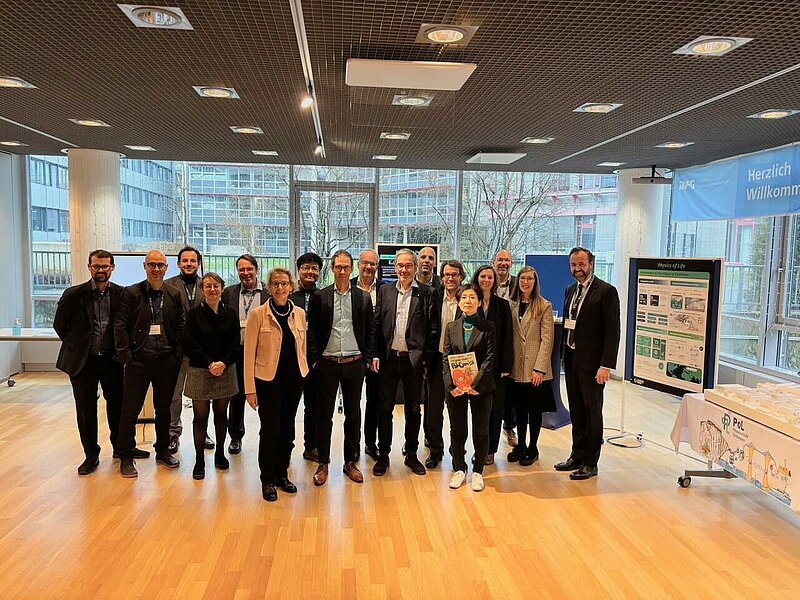For over six years, the Cluster of Excellence Physics of Life (PoL) has been a leading scientific network in Dresden, advancing cutting edge research in the realm of biophysics. As funding from the Deutsche Forschungsgemeinschaft (DFG) for the Cluster concludes later this year, PoL has submitted a renewal proposal for a second funding phase. The DFG funds top-tier university research through its highly competitive ‘Clusters of Excellence’ (EXC) funding line, as part of Germany’s Excellence Strategy. PoL was among 57 Clusters funded for seven consecutive years, from 2019 to 2025. The next EXC funding cycle (2026–2032) is planned to expand to 70 Clusters, with an annual budget of 539 million euros. In January, after months of exhaustive planning, a team, including 13 PoL group leaders, and the Rector of Dresden University of Technology (TUD), travelled to Bonn to defend the proposal for a second funding phase for the Cluster of Excellence.
In front of a panel of international reviewers, the team presented the achievements and future research plans for the Cluster (titled ‘PoL 2.0’). The defense included a 30-minute presentation, spearheaded by the PoL Spokesperson Otger Campàs, with contributions from the leaders of the envisioned 7 PoL research avenues, the Rector of TUD Ursula Staudinger, and the Saxon State Minister for Science Sebastian Gemkow. A dynamic question and answer session followed, where members of the review panel inquired into a variety of topics, from PoL’s world class research, to its measures, past and future, supporting early career researchers and promotion of equity and diversity among others. This meeting was a crucial final step in the renewal application process for PoL to continue as a Cluster of Excellence. Further announcements from the DFG on the outcome are expected in May.
